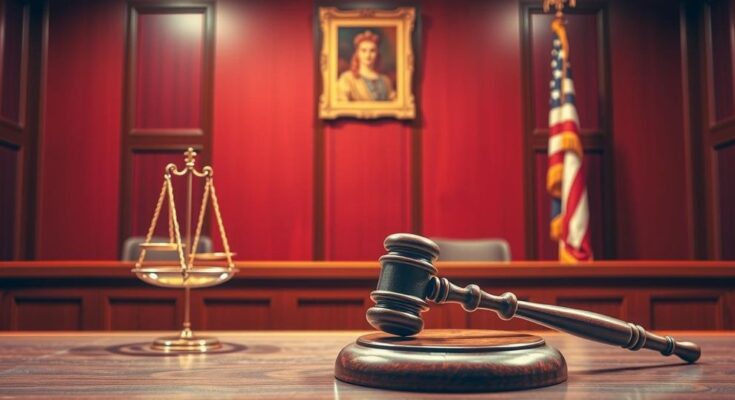Dr. Jallah Barbu announced the imminent readiness of a new bill for Liberia’s War and Economic Crimes Courts. He urged citizens to advocate for its passage, indicating potential indictments beginning in 2027. Memorial events underscored the need for accountability for past atrocities, while calls for reparations and memorialization of victims persist amidst ongoing governmental commitments that have yet to be fulfilled.
Dr. Jallah Barbu, the executive director of the Office of War and Economic Crimes Courts in Liberia, announced that a new bill for the courts will be ready “very soon.” This initiative follows the groundwork laid by a committee he chaired within the Liberian National Bar Association, which submitted a draft to the Legislature in 2021. Despite ongoing delays, Barbu’s team is reassessing the bill due to evolving circumstances, with input from international partners to enhance its feasibility.
The bill is essential as it will outline critical details about the design, staffing, security, and operational framework of the courts. Barbu emphasized the significance of public engagement, urging citizens to pressure their lawmakers to pass the bill, as he anticipates the first indictments could occur by 2027. “Don’t allow anybody to make you afraid that when a war crimes court comes, there will be war,” he stated, advocating for peace and accountability instead.
A strong call for accountability resonated throughout a memorial event held for massacre victims, addressing the need for justice and rule of law in Liberia. Cllr. Tiawan Gongloe, leading the event, reiterated the importance of not allowing past crimes to go unpunished. He urged the government to take action to strengthen legal institutions and prevent future violence, emphasizing that accountability must prevail over impunity.
Cllr. Gongloe also highlighted the need for leadership changes within Liberia’s representation to international bodies, suggesting that figures like Mr. Lewis Brown should be reassessed due to their past ties with controversial governmental actions. Meanwhile, amidst feelings of disappointment over recent legal setbacks, survivors and advocates continued to demand justice for victims of prior massacres.
At the memorial, Mr. Peterson Sonyah, representing the Liberia Massacre Survivors Association, reinforced the collective demand for justice, while Mr. Calluchi Beiah of the Liberia Peace Building Office stressed that genuine reconciliation in Liberia hinges on acknowledging and addressing past atrocities. He affirmed, “There can be no development without peace and there can be no peace without justice.”
The ongoing struggle for reconciliation was underscored by the outcomes of various legal efforts, including a recent US district court ruling against Moses Thomas. Advocates are calling for reparations and memorialization for the victims as essential components of moving forward. Cllr. Oswald Tweh, Liberia’s justice minister, expressed the government’s commitment to establishing a reparation trust fund, although such promises have yet to materialize.
Lastly, while discussions on memorialization, including the exhumation of significant figures from Liberia’s past, continue, Dr. Barbu cautioned that these must be coordinated with the establishment of the courts to ensure proper evidence collection and due process.
In summary, the establishment of the War and Economic Crimes Courts in Liberia is approaching, with a new bill expected soon. Dr. Barbu calls for public support to pressure lawmakers for its passage, emphasizing accountability and peace. Memorial events have highlighted the urgent need for justice for past atrocities, as advocates maintain that true reconciliation requires addressing historical injustices. The government pledges support for victims, but tangible actions remain pending amidst calls for comprehensive reparations and memorialization efforts.
Original Source: frontpageafricaonline.com




